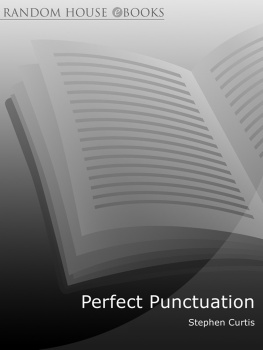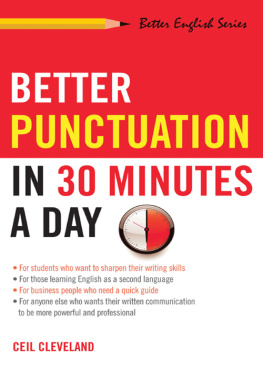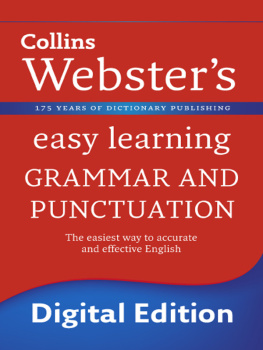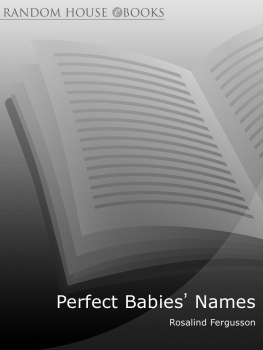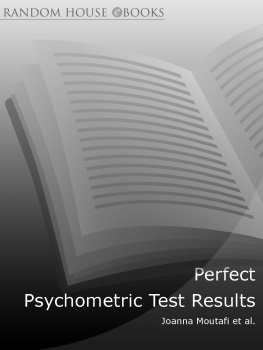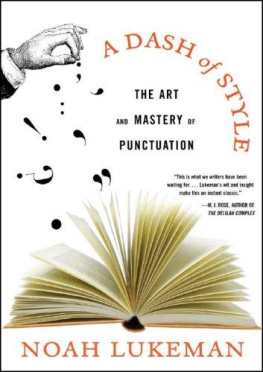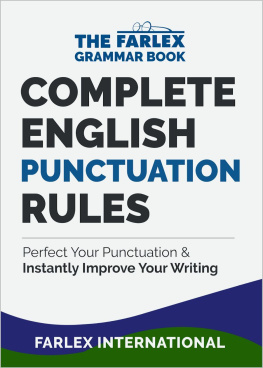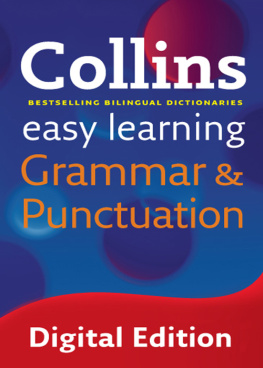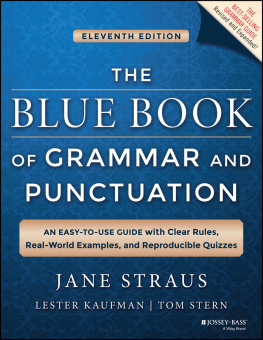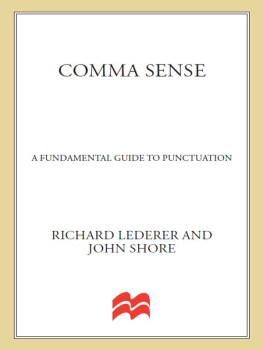Contents
About the Book
Do you find punctuation a bit confusing?
Are you worried that your written English might show you up?
Do you want a simple way to brush up your skills?
Perfect Punctuation is an invaluable guide to mastering punctuation marks and improving your writing. Covering everything from semi-colons to inverted commas, it gives step-by-step guidance on how to use each mark and how to avoid common mistakes. With helpful examples of correct and incorrect usage and exercises that enable you to practise what youve learned, Perfect Punctuation has everything you need to ensure that you never make a mistake again.
The Perfect series is a range of practical guides that give clear and straightforward advice on everything from getting your first job to choosing your babys name. Written by experienced authors offering tried-and-tested tips, each book contains all you need to get it right first time.
About the Author
Stephen Curtis was an English lecturer for ten years and since 1988 has worked as a freelance lexicographer, translator and writer. He contributed to The Encarta World English Dictionary and The New Penguin English Dictionary and wrote, with Martin Manser, The Penguin Writers Manual and The Facts on File Guide to Style.
Other titles in the Perfect Series
Perfect Answers to Interview Questions Max Eggert
Perfect Babies Names Rosalind Fergusson
Perfect Best Man George Davidson
Perfect CV Max Eggert
Perfect Interview Max Eggert
Perfect Numeracy Test Results Joanna Moutafi and Ian Newcombe
Perfect Personality Profiles Helen Baron
Perfect Psychometric Test Results Joanna Moutafi and Ian Newcombe
Perfect Pub Quiz David Pickering
Perfect Readings for Weddings Jonathan Law
Perfect Wedding Speeches and Toasts George Davidson
Introduction
To the reader
I should very much like to begin this book by assuring my readers that mastering the art of punctuation is not only vital for their success and happiness in life, but also tremendous fun.
Honesty, unfortunately, will not allow me to make either of these claims. Punctuation is a relatively modest art and a servant to other aspects of writing. You are never likely to read a book review that says, The plot is predictable, the characters are boring and the style is lifeless, but all this is redeemed by some magnificent punctuation. On the other hand, if the plot, characters and style are magnificent, but the authors punctuation leaves something to be desired, you are unlikely to be put off from reading the book. You can get by without knowing the finer points of punctuation, just as you can get by without knowing how to spell difficult words, where to find China on a map of the world, when the Battle of Hastings took place, or what is meant by H2O. Certain, perhaps rather peculiar, people may wince, or foam at the mouth, when they read a label saying POTATOS in a greengrocers shop, but they do not mistake the potatoes for tomatoes or oranges on that account or necessarily refuse to buy them do they?
You can get by, usually, because other people will fill in the gaps in your knowledge or skill for you. Also, the human mind is programmed to try to make sense of things. A hastily scrawled note or a text message is not altogether incomprehensible because it takes liberties with grammar, spelling and punctuation and mixes words, numbers and symbols. Readers, often in a hurry themselves, want to understand. Consequently, and out of the goodness of their hearts, they will do the necessary interpretive work for the writer.
The fact that you have bought this book, or simply picked it up to look at it, perhaps means that you do not want simply to get by or be, like Tennessee Williams heroine in A Streetcar Named Desire, always dependent on the kindness of strangers. Correct punctuation and spelling may be fairly modest accomplishments, but if you can punctuate and spell, you can at least be a net contributor to understanding and clarity and not an intellectual scrounger. You will also run less risk, if this is important to you, of being considered ignorant, uneducated or a person who is, however inadvertently, contributing to the decline of the English language or, indeed, civilisation as we know it.
The purpose of this book
The final sentence of the previous paragraph introduces a rather delicate topic. The purpose of this book, as the title suggests, is to perfect your punctuation or, if that seems too ambitious an aim, to try to explain the purpose and function of the various punctuation marks and enable you to use them with confidence. However, this is not a campaigning book. What you do with any knowledge or skill you gain from it is your own affair, but it is not primarily intended to put you in a position to pour scorn on people who misuse apostrophes or semicolons. There is a lot of fun to be had from spotting howlers of all sorts. There is more fun in mispunctuation, misspelling and misuse of language, probably, than in correct punctuation, spelling and style. But there is, or there ought to be, pleasure in doing anything well, whether it is making something, writing something or even punctuating something. If this book enables you to experience some of that kind of pleasure, it will more than have fulfilled its aim.
Language and writing style are always changing. This change is a fairly gradual process, but it is a continuous one. Writers used punctuation differently fifty or a hundred years ago. People who wrote about punctuation then would likewise have offered different advice or instructions to their readers. (It may come as a relief to the reader to know that nowadays punctuation is less complex than it used to be, and that there is, generally speaking, less of it.) In another fifty or a hundred years time, things will, no doubt, have changed again. Obviously, this book can only provide information about the current situation; a more important point to note, however, is that correctness can only be assessed on the basis of what is correct now and, more often than not, what is considered correct now is based on what was considered correct in the past.
It may often seem that people who care about language are simply trying to hold a door shut either against a tide of new ideas and practices or against a horde of ignorant and uneducated vandals whose aim is to destroy the English that they love. If this is what they are trying to do, it is bound in the end to be a vain endeavour. Hopefully, in the sense of it is to be hoped that, still causes controversy, at least among purists, even though the word, according to The New Oxford Dictionary of English, is used far more frequently now in this new sense than in the old (The dog saw me putting on my shoes and stood up hopefully), which surely proves that many if not most people find the new sense useful. There is no language police to arrest a word that breaks through the door. Dictionaries, and the other works that we go to for authoritative advice on language, eventually swim with the tide. Most dictionaries, in fact, trumpet the number of new words they contain, which are, in some cases, words that purists might originally have shuddered at. If enough users of English decided that potatos was a correct way to spell the plural of potato, that usage would eventually creep into the dictionary and into books such as this one. We are still a long way from that, however.
We need perhaps to think about correctness in a different way, not so much as an exercise in shutting things or people out or rescuing a beloved language from barbarians, but as something that we get a modest pleasure from because it is a good thing in itself. It is good to be educated and to be able to speak and write clearly and correctly according to the standards of the time in which we live. It may not be cool, it may not be sexy, but it is a good thing and it is a useful thing. Unless we believe that somewhere deep down, the barbarians have already won and taken over.
Next page
